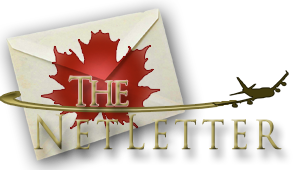|
Born in Winnipeg in 1910, Russ Baker learned to fly at the age of 16. Within the next half dozen years, he was flying commercially on some of the earliest mail, passenger and freight services in Canada. He became famous for his bush flying operations in northern Canada.
As a bush pilot, he did much of his flying in connection with the Alaska Highway survey in the early part of the Second World War. While flying in the North, he earned the United States Air Medal for his rescue of the crews of three U.S. bombers who were forced down in the Yukon while on a wartime mission.
Prior to starting his own company, Central B.C. Airways at Fort St. James in 1946, Baker was divisional superintendent in Whitehorse for Canadian Pacific Airlines. He had previously pioneered West Coast flying as a pilot with Canadian Airways and as a partner with 'Ginger' Coote, a respected pilot of the bush-flying days. But it was with Central B.C. Airways that Russ Baker made a name for himself.
In the early days of flying, the success of any operation was almost entirely due to the capability of the pilot — not only from the standpoint of his skill in operating the aircraft, but from his initiative in bringing in new business, making friends with the local people, and sizing up the general business situation at the time. This is where Baker excelled.
Starting with one plane and two employees (Central B.C. Airways), he began the first of many acquisitions when he took over Kamloops Air Service in 1949. In 1950, it acquired Terrace-based Skeena Air Transport, and three years later Associated Air Taxi of Vancouver.
In 1953, Baker changed the airline's name to Pacific Western Airlines to assert its new position on the Pacific coast. In 1954 he nabbed the key to the Yukon, Whitehorse Flying Service, and the following year he added the coastal operations of Queen Charlotte Airlines. 1955 also marked his last acquisition, when he obtained Associated Airways Ltd., which operated out of Edmonton to Yellowknife and down the Arctic coast.
Russ Baker became synonymous with British Columbia air transport by supplying bases such as the Alcan Aluminum project in 1951 and the DEW (Distant Early Warning) Line in 1955. These projects gave Pacific Western Airlines the financial capital it needed to expand.
Russ Baker died of a heart attack on November 15, 1958, and was buried in Fort St. James, the city in which he founded Central B.C. Airways.
'Russ Baker Way’, on the approach to Vancouver International Airport, is named in his honour in Richmond, B.C.
|

